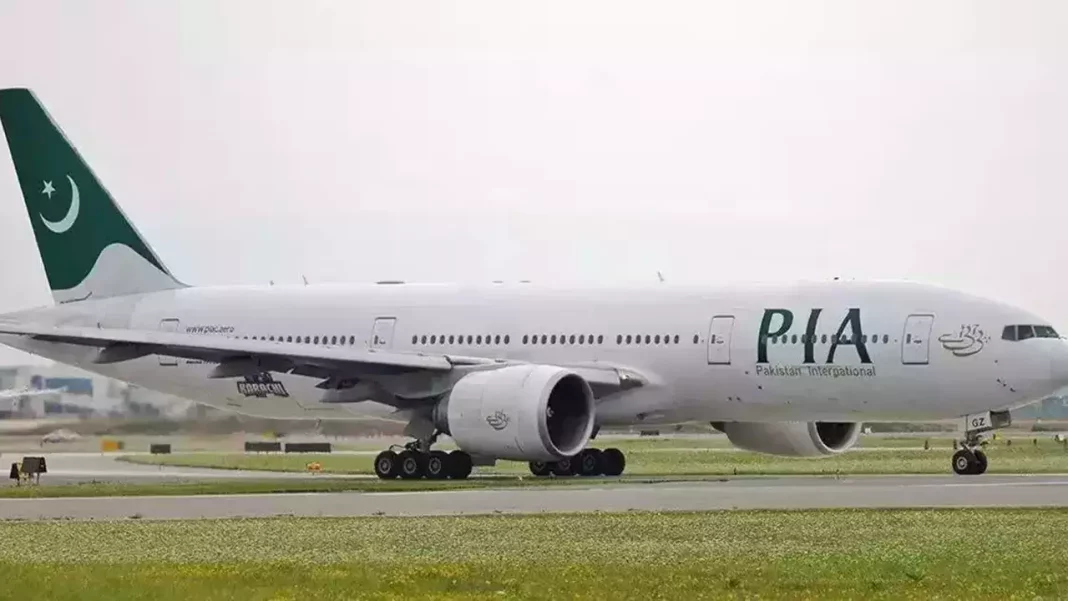On Wednesday, Prime Minister Shehbaz Sharif sanctioned the privatization of Pakistan International Airlines (PIA) by June 15 and approved the restructuring plan of the Federal Board of Revenue (FBR), previously cleared by the caretaker government.
Continuing the policies of the previous setup, the PML-N government pushed forward with the remaining tasks of the Special Investment Facilitation Council (SIFC) and the interim arrangement.
Former Finance Minister Ishaq Dar, initially hesitant, joined the PM’s discussions on economic matters. Also present was Muhammad Aurangzeb, rumored to be appointed as the Special Assistant to the Prime Minister (SAPM) on Finance.
According to sources, the privatization secretary briefed the premier on the potential privatization of PIA by June 15, pending the timely execution of the scheme to split the national airline into two entities and transfer the Rs622 billion debt to the new holding company. However, this scheme depends on obtaining no-objection certificates from PIA’s creditors.
The prime minister instructed the privatization secretary to expedite the process of selling the entity further.
In 2022, PIA ranked as Pakistan’s third-highest public sector loss-making entity, requiring Rs11.5 billion per month solely for debt servicing.
Additionally, the prime minister endorsed the FBR’s restructuring plan, which previously received approval from the caretaker government but faced hurdles in implementation due to legal challenges.
The approved restructuring plan diverges from the PML-N’s manifesto, which proposed separating the customs department from the FBR and placing it under a yet-to-be-created economy ministry.
Previously, the premier had directed the hiring of foreign consultants to modernize and digitize the FBR. It was decided that these consultants would spearhead the digitization initiative, though the prime minister expressed dissatisfaction with involving the National Database Registration Authority (Nadra) in the process.
Under the approved plan, the FBR will be dissolved, and two new organizations – the Federal Customs Board and Federal Inland Revenue (IR) Board – will be established under the Revenue Division.
Former Finance Minister Dr. Shamshad Akhtar initiated the FBR restructuring, which entails amendments to tax statutes, legislation for the new organizations, and changes in rules and regulations.
Administrative, financial, and operational autonomy will be granted to the customs and Inland Revenue organizations, each headed by a director general appointed by the federal government.
Decisions will be made jointly by both director generals on matters such as international taxes, valuation of goods, IT, and human resources.
The prime minister instructed the finalization of a timeline for implementing the restructuring plan, with any procurement-related issues to be expedited through the SIFC.
Dr. Shamshad highlighted the FBR’s revenue losses, emphasizing the potential to increase revenues by improving compliance. She projected that the tax to GDP ratio could reach 10.8% in the next fiscal year with restructuring, and revenue could be enhanced by Rs1.7 trillion through improved compliance alone.




